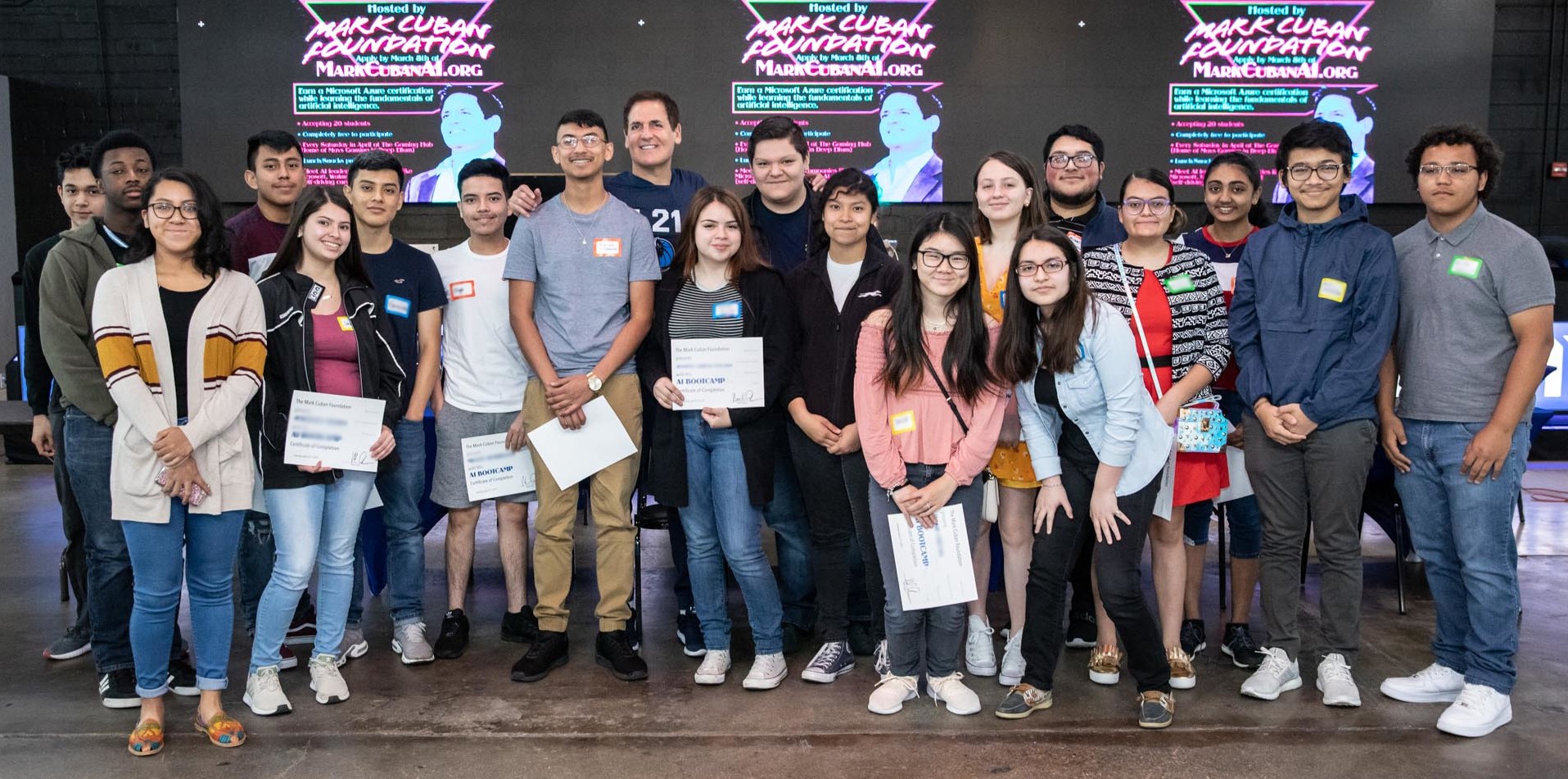Two South Florida locations chosen for Mark Cuban’s AI Bootcamp for high school students
Read Time 3 MinutesTwo South Florida counties have been chosen for Mark Cuban’s Artificial Intelligence Bootcamp for high school students: Miami-Dade and Palm Beach county. They are two of the 30 camps being held across the United States this Fall season attracting over 600 high school students grades 9th – 12th.
Florida Power and Light will host the no cost AI bootcamp in Palm Beach County at the beautiful FPL Manatee Lagoon in West Palm Beach which is an FPL Eco-Discovery Center. The program will be targeted at high school students and introduce underserved students in grades 9 through 12 to basic AI concepts and skills. The Miami location will be hosted by Argo AI at Miami Dade College’s AI Center located in North Campus. Both bootcamps will be held over four consecutive Saturdays starting on October 22nd and ending on November 12th.
“‘FPL is proud to serve as the host company for Mark Cuban’s AI Boot Camp for students who would otherwise not have exposure to programs in STEM. Our corporate culture is focused on giving back to the communities where we live and work. We are intentional about supporting and building thriving communities for the next generation. We hope students will be inspired to pursue careers in STEM right here in South Florida,” said Grace Kurian, Executive Director of Information Technology- Nuclear at NextEra Energy, Inc. NextEra Energy owns FPL, which is the largest vertically integrated rate-regulated electric utility in the United States.
Founded by Mark Cuban in 2019, the AI Bootcamp initiative has hosted free AI bootcamps for students across several US cities, including Dallas, Pasadena, Chicago, Pittsburgh, Detroit, and Atlantic City to name a few. The Mark Cuban Foundation has impacted 450+ students to date and has a goal to have 1,000 students graduate from AI Bootcamps Program in 2023. These two South Florida bootcamps are the first in the region.
A Wall Street Journal article read, “Mr. Cuban’s focus on AI comes as technologists and academics attempt to raise awareness about diversity and inclusion issues within AI and the technology industry. Women and minorities are underrepresented in artificial intelligence, and experts say that’s a problem that could contribute to algorithmic bias.”
“I saw the impact of PCs. Then I saw the impact of local area networks. Then I saw the impact of wide area networks. Then I saw the impact of the Internet. Then I saw the impact of mobile. Then I saw the impact of wireless. Now I’m seeing the impact of artificial intelligence. And it dwarfs any of those things,” says Mark Cuban. “One of my goals is to really go out and find the superstars. There are so many there that are under-appreciated and don’t have access to resources.”
Aimed to increase AI literacy and understanding in students from underserved communities, the high schools students do not need any prior experience with computer science, programming, or robotics to apply and attend.
Throughout the AI Bootcamp, students will learn what artificial intelligence is and is not, where they already interact with AI in their own lives, and the ethical implications of AI systems including but not limited to TikTok recommendations, smart home assistants, facial recognition, and self-driving cars to name a few. Students will benefit from volunteer mentor instructors who are knowledgeable about data science and able to help students quickly understand material normally taught at a collegiate level.
As part of the 5-hour curriculum, students also get to work in Microsoft Azure, Microsoft’s cloud computing platform, each day to build their own AI applications related to Chatbots, Computer Vision, Machine Learning, and Natural Language Processing.
The Mark Cuban Foundation provides the bootcamp’s curriculum materials, trains volunteer mentors, and recruits
and selects local students to attend camp. In addition, the Mark Cuban Foundation and each host company, Florida Power & Light and Argo, work together to provide food, transportation, and access to laptops for students at no cost throughout the duration of Bootcamp.
Applications are now open at markcubanai.org/apply22. The deadline to apply is Thursday, September 1st, 2022.



